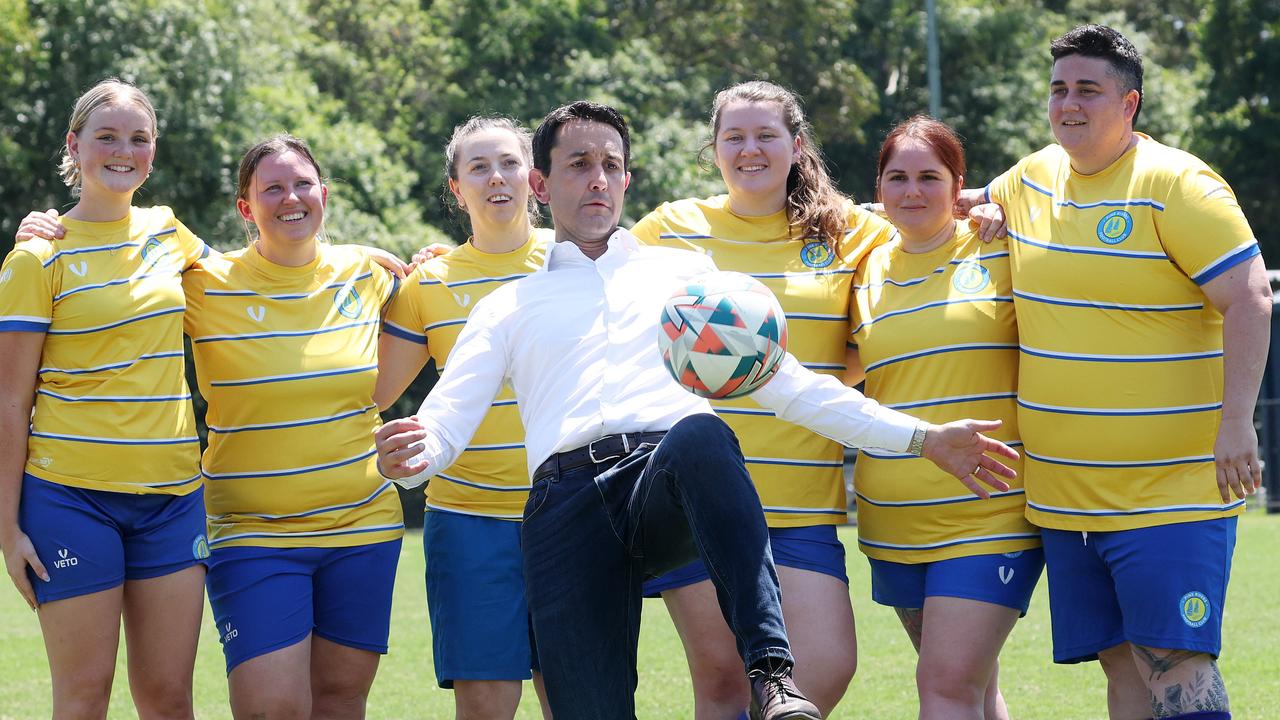Rugby Sevens star Dylan Pietsch relishing role as mentor in AIS Mental Fitness Program
Rugby Sevens star Dylan Pietsch has revealed the depth of his mental health battles and how he is working to help educate the next generation of elite athletes.
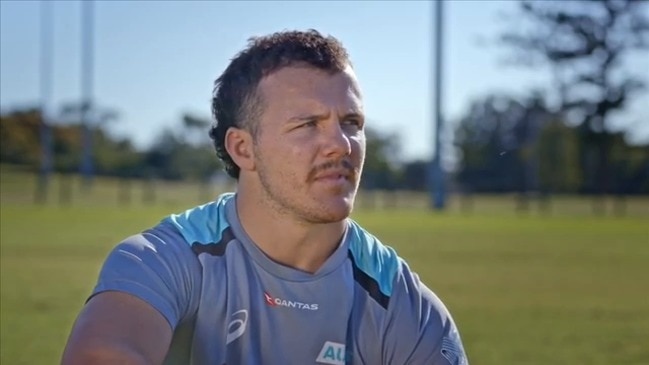
Dylan Pietsch loves letting people know how lucky he is.
A star member of the Australian Rugby Sevens team, he’s living the sporting dream – flying around the world, playing in front of huge crowds and dreaming about winning Olympic gold in Tokyo next year.
But that’s not why he’s counting his blessings.
You wouldn’t know it from looking at him when he’s racing around the field scoring tries and making tackles but Pietsch is a suicide survivor with a message of hope.
“Everyone thinks you are bulletproof because you’re a footy player,” he said.
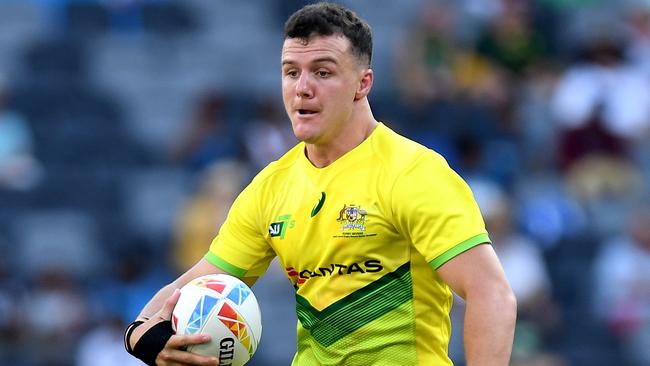
“But I had a lot of mental health issues growing up and I tried to take my life in 2018.
“I can share my story, such a common story, which is crazy to think about.”
The tragic deaths this year of Shane Tuck, Jacinda Barclay and Katia Alexandrovskaya have refocused attention on depression among elite athletes, which has been exacerbated by the cancellation of sports events during the global pandemic.
The warning from experts is clear: high-performance athletes face the same mental illness issues that everyone else does, even though they may not show it.
That’s why Pietsch has teamed up with the Australian Institute of Sport (AIS) and the Black Dog Institute. One of 27 athletes involved in the Mental Fitness Program, he has begun speaking to high school students across the country, offering advice on how they can develop tools and techniques to deal with depression.
Recognising depression is the first step – which Pietsch himself didn’t do until it was almost too late.
“I had no idea that it was happening to me,” he said. “I didn‘t know what it was, I didn’t know what depression was, it was just a very dark place that I didn’t know how to identify.
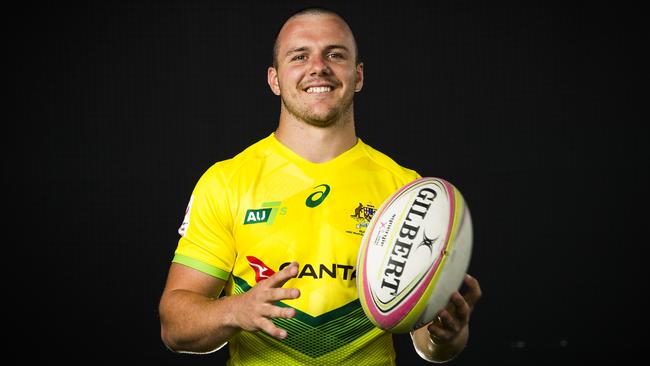
“I didn’t know who I was. I didn’t know what I was doing with my life, it was just such an unknown space that I’ve never had to deal with before and it was weird because I didn’t think I’d be a person that would happen to.
“I was getting back from training, getting dinner then going to bed and looking at the mirror and just crying for an hour, just not sleeping at all, then waking in the morning and just walking for about four hours, then having two hours sleep and going to training.
“That repetitive cycle of events creates this mind where it was really unhealthy and everything just spirals down and down, just little things adding up every day.
“It’s crazy for me to look at now. I think that was my kind of norm at the time. I wasn‘t talking to people about it.”
When he finally did open up about his depression, things suddenly started to make more sense for Pietsch.
His father confided in him that he had also had depression then Pietsch soon realised what was missing in his life – a closer connection with his Indigenous heritage.

“I think that was a big part of my depression because there was a part of me that I knew was there that I didn’t explore,” he said. “There was a little hole in my heart.
“I was an Indigenous man but I didn’t know the law, I didn’t know how to be Indigenous and everyone saw me as white person because of my skin but I am Indigenous and without the stolen generation, I could be black.
“I feel that fuelled a bit of my depression because I didn’t know why I was and that’s a big part of my life and coming out of it and developing my culture.”
AIS MENTAL HEALTH PROGRAM
— AIS Mental Health Referral Network (MHRN) now supports 2859 athletes and has expanded in 2020 to include retired athletes, coaches and support staff. It provides free and confidential mental health support.
— AIS Lifeline Custodians: 22 athletes selected annually to increase community awareness around suicide prevention and encourage anyone who needs support to reach out and ask for help.
— AIS Mental Fitness Challenge: Launched in 2020 in partnership with the Black Dog Institute, 27 AIS-aligned athletes present mental health and resilience training to high school students. It has reached 12,000 kids in five months.
— AIS has funded and embedded 33 Athlete Wellbeing and Engagement Managers within 26 sports to provide direct support to athletes.
— AIS Athlete Education Scholarship: Launched during COVID to provide 40 athletes from 19 sports with scholarships to assist their tertiary education in balance with their sporting careers.
— Since March, the AIS has delivered 34 group mental health education sessions to sport on coping with COVID-19 and Olympics postponement, reaching over 900 attendees.
— Since April, there has been a 103% increase in referrals to the Career Practitioner Referral Network (CPRN), coinciding with the postponement of the Tokyo 2020 Olympic Games and COVID-19 implications. A national network of professional career practitioners servicing athletes across the country.
GOLDEN GIRLS REUNITE TO HELP NEXT GENERATION
Unstoppable when they joined forces in the pool, Leisel Jones and Jodie Henry have reunited for another golden cause.
Both triple Olympic gold medallists and world champions, Jones and Henry have been recruited by the Australian Institute of Sport’s (AIS) Athlete Wellbeing and Engagement program to mentor future Olympians about how to better balance their lives.
It’s an area both admit they didn’t get it 100 per cent right when they were gunning for gold but with the benefit of hindsight, they’re ready to pass on their life lessons to the next generation of medal hopefuls.
“The best advice I have — and it’s my fault that I didn’t actually do this myself — is to take advantage of all the opportunities that are available because as athletes we retire very young and you can feel like you’re behind the 8-ball because you don’t have a degree or any work experience,” Jones said.
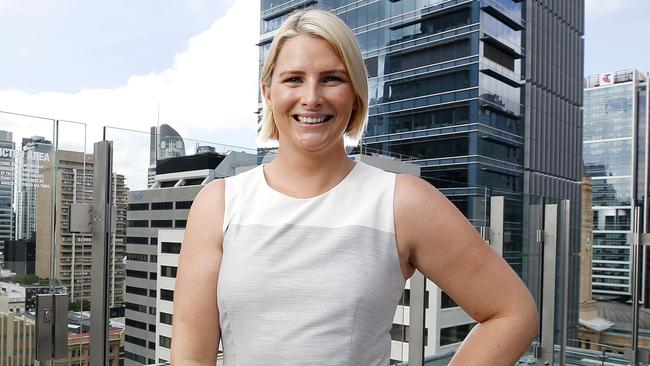
“Then there’s the mental wellbeing side of things. When I first started in my career, we were not really encouraged to see sports psychologists but they are there to help and they can make a big difference, especially in swimming which is about 80% mental and 20% physical.”
Though similar ages, Jones and Henry had very different careers.
Jones competed at a record four Olympics — the first at Sydney 2000 when she was just 15 and her last at London in 2012 — winning a record nine medals, including gold in 100 metres breaststroke at Beijing in 2008 and medley relay golds in 2004 and 2008.
Henry competed at just one Olympics, Athens 2004, but scooped the pool with three golds, in 100m freestyle and two relays, before injury cut short her career.
Like Jones, Henry struggled to figure out what she wanted to do after hanging up her goggles. She stepped away from the sport for a decade to raise a family before getting involved in 2018 when she was asked to help out with the junior Pan Pacs squad.
“Everyone’s journey after they leave sport is different,” she said.
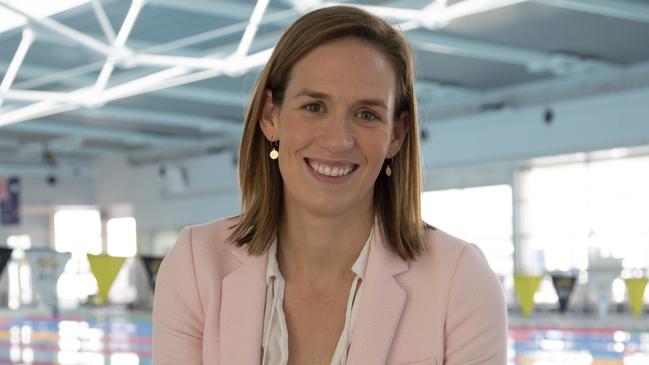
“I didn’t have anything outside of the pool that I was really passionate about so I didn’t take the opportunity to explore them because I honestly had no idea where to start.
“That’s different nowadays because athletes are really good at recognising they need something outside of their sport and that’s what one of the things I help them with.”
Jones and Henry are among 33 managers who have begun working in the four focus areas of the AIS’s Wellbeing programs and initiatives, that includes coach development, career development, leadership and culture.
Now studying psychology at university, Jones is working with Athletics Australia while Henry has teamed up with Linley Frame as a manager with Swimming Australia and already has a ready-made mind of matter story to tell the next wave of Dolphins.
Naturally shy, Henry’s victory over Dutchwoman Inge de Bruijn in the 100m freestyle final in Athens remains one of the most striking examples of a swimmer overcoming their own anxieties to rise to the occasion.
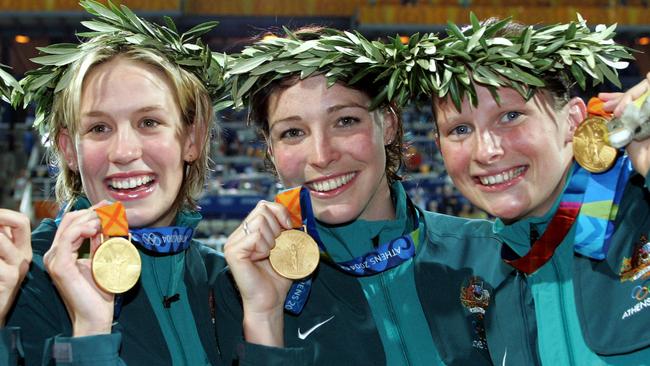
Although she possessed the predatory instincts of a killer shark, Henry was a bundle of nerves before stepping on the blocks but had everyone fooled that she was completely relaxed as she giggled and waved to friends and family in the crowd before turning on the afterburners to win the gold.
“The truth is I was like a duck on top of the water everything looks calm but underneath, the legs are going crazy and the butterflies I had were insane,” she said.
“I was extremely nervous but those were the things that my coach had specifically told me to do to keep the nerves away as much as possible.
“Even though they might look like it sometimes, athletes are not robots, They have their ups and downs like everyone else and many of them are very young so we need to give them a bit of a break sometimes.”
If this article raises issues for you, help is available at Lifeline on 131 114
The Daily Telegraph







